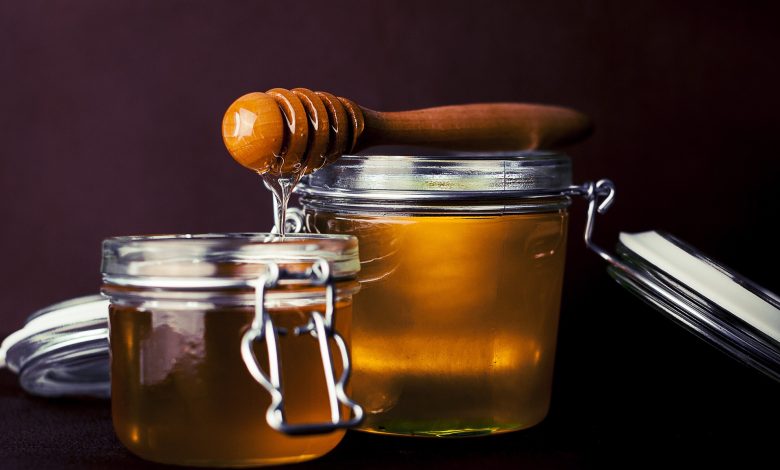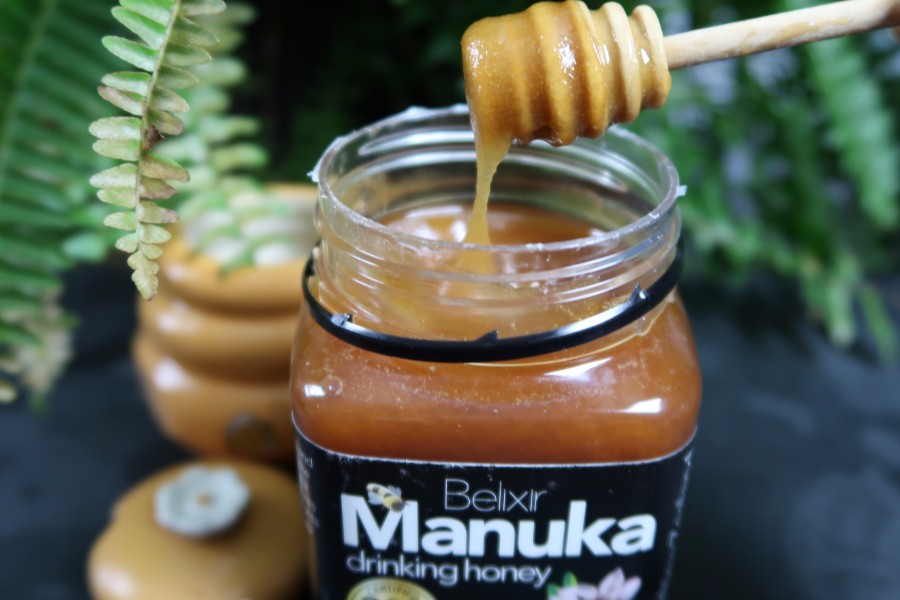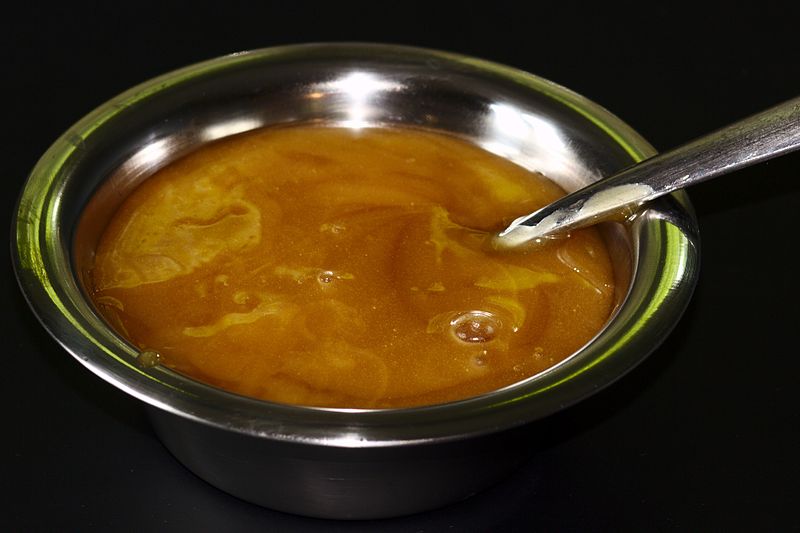
Should You Take a Spoonful of Manuka Honey in Your Daily Diet?
Honey is considered a very beneficial food stuff because it is believed to have a number of curative properties to its credit. You will find a jar of honey on almost every kitchen shelf, and there are people who swear by it to cure sore throats, coughs, and similar persistent ailments. A good number of people across the world regularly take honey with warm water to keep their weight in control as well. While honey itself has such goodness to offer, there is a special kind of honey that is no less than a super food. This is Manuka honey, a kind of honey that originates from New Zealand.
You may have seen jars of Manuka honey in your local supermarket, and chances are that you took one look at the price tag, balked and then went back to regular honey. Yes, Manuka does come with a price that can give you a good shock, but if you ask the folks who still don’t hesitate to buy this golden superfood, they will tell you how it is worth the expense. A spoonful of Manuka on a regular basis may give you much more than just immediate relief from sore throats and a slim waist because it does pack quite a punch when it comes to health benefits. But first, here is a quick introduction to what Manuka honey is.

Manuka Honey: The Superfood from New Zealand
Manuka is a scrub plant found in New Zealand. Bees that pollinate from this particular plant create honey that has some special properties that set it well apart from the regular kind. The wild Manuka tree honey has a very distinctive, strong flavor and darker color than other honey varieties. But what is significant from the perspective of health benefits is that this honey has something called methylglyoxal (MGO). This useful ingredient appears to have some awesome anti-microbial properties that make this specific honey a great addition to your diet.
But don’t all honey varieties have anti-microbial properties? Well yes, they do in fact. That’s why honey, in general, is used so commonly across cultures with many traditional medicines using it liberally. However, the main ingredient in honey that kills bacteria is an enzyme, glucose oxidase, that breaks down sugars and creates hydrogen peroxide. Without this hydrogen peroxide, the honey loses its the ability to eliminate bacteria.
But that’s for regular honey. When it comes to the honey formed from the Manuka plant, the removal of hydrogen peroxide does NOT put a dent in this golden food’s ability to get rid of disease-causing bacteria. The methylglyoxal with its impressive anti- microbial properties works its wonder, even when the hydrogen peroxide has been removed.
It was only in 1991 that this amazing fact was discovered by the Honey Research Unit in New Zealand, so Manuka honey is quite a new entrant in the health food market, although regular honey and its benefits have been a fixture here since ages. It is this special property of Manuka honey that makes it so expensive and exotic.
Keep in mind that Manuka honey also appears to have a composition that makes it more resistant to light and heat, so it is better in terms of healing properties for a longer period than other honey variants for this reason as well.
The Significance of the UMF Number
When you head out to buy a jar of Manuka honey, the most important thing to look for is the UMF number. This is a trademark used by licensed producers and exporters of this particular variety of honey. Manuka bottles come with the Unique Manuka Factor number printed upon them, telling you about the purity and quality of the product. This number is significant because it tells you about the efficacy of this particular bottle of honey in killing bacteria. Manuka honey is graded based on its UMF factor, with a higher number denoting a higher capability in killing bacteria since the honey contains a higher proportion of Manuka nectar.
To give you a quick primer on what to expect when it comes to the UMF factor:
- 0 to 4: Virtually nonexistent MGO content
- 5 to 9: Low levels of MGO
- 10 to 15: Adequate levels of MGO, enough to give you significant anti- microbial action
- 16: The best kind there is, with high levels of MGO and superb anti- microbial properties.
As is evident, the higher the UMF number, the pricier your Manuka honey will be.
Some bottles also come with an MGO based grading, and again, the higher the number, the higher the concentration of this bacteria killing ingredient and the higher the price. If you are seeing an NPA rating instead of MGO or UMF, it only denotes the MGO content measured after the removal of hydrogen peroxide.

Nutritional Profile
Since Manuka honey, just like any other honey, has high sugar content, diabetics need to be careful while using it. Manuka honey has about twelve grams of sugar in two teaspoons. However, the good news is that this sugar is simple sugar, which can be absorbed by the body far more easily than refined sugars can. This honey also has other benefits to offer, which other sugars don’t and this makes Manuka honey a good substitute as a sweetener. In fact, the sugars in honey are sweeter, and they give you more energy than refined sugars, so a smaller quantity may suffice in place of the latter.
Manuka honey has low fat and low protein. It gives you just short of five calories in two teaspoons. But it does have a whole host of amino acids that are essential for good health. Vitamin B, zinc, potassium and iron are other useful nutrients that you get from Manuka honey.
Packed with goodness in many forms, Manuka honey is also considered to be an effective wound care option. The FDA recognizes it as being beneficial in this area. Its anti-bacterial, anti-microbial benefits make it a good choice here, and to add to this, it works as a protective barrier to prevent the wound from being further exposed to harmful micro-organisms as well. It is not recommended that you apply honey on your wounds directly, though, because contamination can result. However, Manuka honey dressings and bandages are FDA approved. It also appears that scarring is reduced when wound care is done with Manuka honey.
While on the subject of topical use of honey, Manuka makes an awesome addition to your face pack because it gets rid of skin problems like acne, eczema, etc. Its anti-microbial properties work well to sort out skin infections and give you clear, glowing skin. However, the cost of the honey is a deterrent to using it for cosmetic purposes.
Manuka Honey as a Part of Your Daily Diet
While Manuka honey is on the expensive side, it has so many benefits to offer that including it as part of your daily diet might still be well worth it. Remember that, if you can keep ailments away by adding this honey to your breakfast or green tea, you do save on doctor’s bills and sick leaves from work.
Here are some good reasons for you to use Manuka honey on a regular basis:
Effective Against Superbugs
One of the most alarming problems we are facing in terms of healthcare today is that bugs appear to be growing resistant to antibiotics. This means that we may need to take stronger antibiotics now to get rid of relatively minor ailments or that we may need to take medications for a longer term, both of which are avoidable. Antibiotic resistant infections can lead to fatalities as well. Thankfully, we have a natural solution for some of these infections like Clostridium difficile and Methicillin resistant Staphylococcus aureus in the form of Manuka honey.
This superfood’s specialty seems to be its ability to combat infections that form biofilms, at which stage, it is typically considered untreatable. Manuka honey appears to retain its bacteria fighting properties even with such biofilm forming infections. It has been seen in studies that this particular honey is effective in treating long standing infections that have not responded to antibiotics.
Prevents Sore Throat
Some people have a predilection for throat related issues come winter. If you are one of those or you feel the onset of a sore throat, taking Manuka honey in warm water or in ginger tea will not just offer immediate relief from the itching, tickling sensation, but will also get rid of the infection before it takes hold. It may be a good idea to take Manuka honey regularly when the temperature dips, as a preventive. Manuka in hot water infusion or ginger tea with Manuka is also an excellent remedy for persistent coughs – both as a cure and as a preventive.
Since it is antibacterial and antiviral, Manuka honey reduces the inflammation that you develop with a sore throat while actively eliminating the bacteria that is the root of the problem. The honey also leaves a soothing coating on the throat lining that gets rids of the urge to cough frequently.
Helps Combat Iron Deficiency
Studies show that honey helps improve your condition if you suffer from anemia. Manuka honey has good iron content that may help improve hemoglobin concentration if you take it regularly. Since it also contains several other nutrients, including zinc and vitamin B, this honey can be thought of as a good source of nutrition to prevent iron deficiency and improve overall health.

Digestive Aid
Research shows that Manuka honey may help rectify ailments like Irritable Bowel Syndrome. If you frequently experience stomach pain, constipation, diarrhea, or irregular bowel movements, regular use of Manuka honey may help significantly. It may also have a positive impact on bacterial infections in the bowel.
While on the subject of stomach problems, it is also believed that Manuka honey can help prevent gastric ulcers. These are sores that appear on your stomach lining, and they can cause severe stomach ache. Typically, gastric ulcers are caused by the bacteria H. pylori, against which this particular honey is quite effective.
Effective in Respiratory Tract Infections
Upper respiratory tract infections are common in those suffering from lung ailments, and this honey is believed to be very effective in curbing the growth of the two bacteria that are the main cause for such infections. Regular ingestion of this honey not only restricts the proliferation of these bacteria, but also actively fights the infection by eliminating them. Since the honey works well with the course of antibiotics prescribed for the condition, it can be a good supportive treatment for those who are already taking medication.
Hay Fever Remedy
The Maoris traditionally use Manuka honey as a remedy for hay fever and also to prevent the runny nose, sneezing, and coughing that usually accompanies this ailment. The MGO in this honey is found to be particularly effective in treating nasal mucus. If you are prone to this kind of seasonal allergy, it might be a good move to start taking Manuka honey regularly right before the usual allergy season begins instead of loading yourself up with antihistamines later on after the allergy sets in.
Manuka for Healthy Teeth
If you want to keep tooth decay away and ensure healthy gums, a spoonful of Manuka honey everyday may get you the results you seek. The anti-bacterial properties of the honey work very well on your teeth and gums and reduce the incidence of gingivitis and even plaque formation.
The best thing about using Manuka honey for oral wellness is that the antibacterial property of this honey works on just the harmful bacteria, allowing the beneficial bacteria to flourish and promote oral health. Bacteria that cause gingivitis are especially easy to control with Manuka honey. If you are in the habit of taking too much sugar in your foods and this has lead to oral problems, then apart from cutting down the overall sugar content, you can also switch to this honey in place of refined sugar since it has distinct benefits to offer here.



